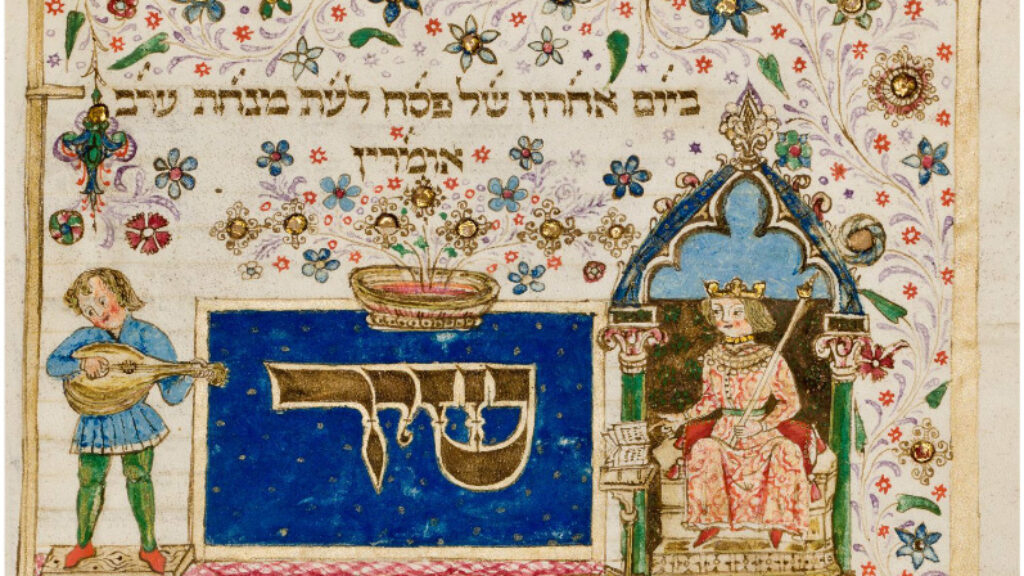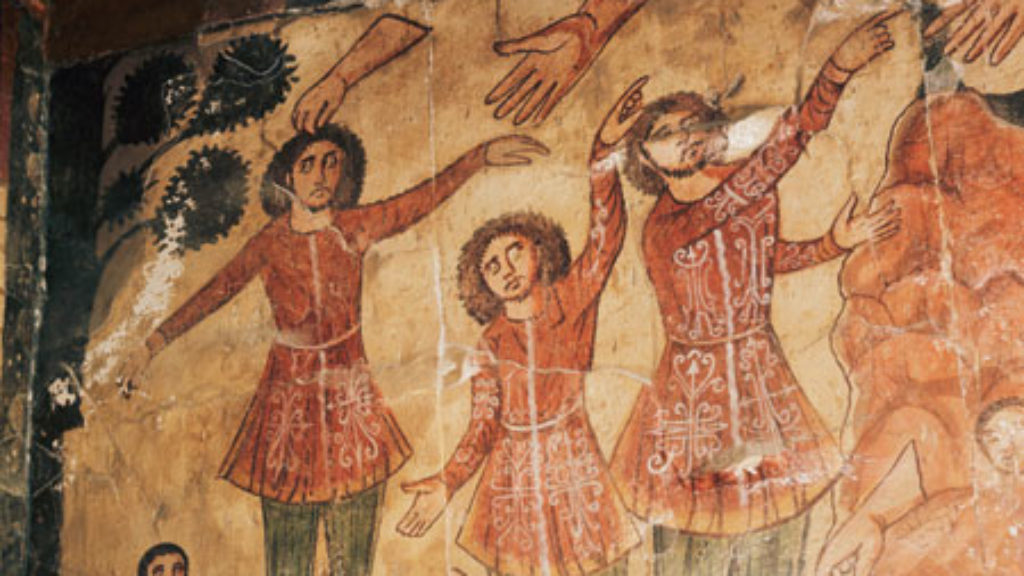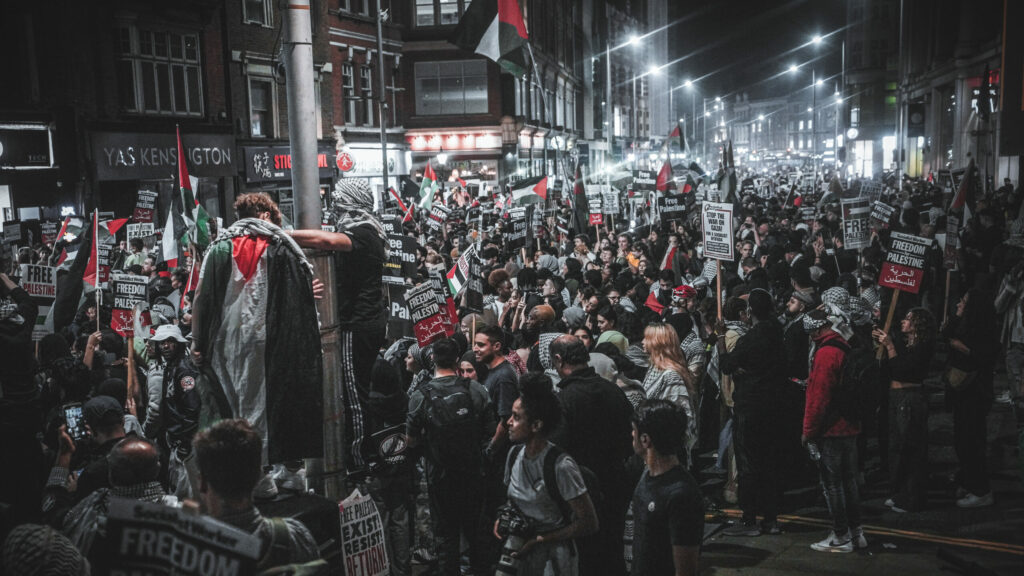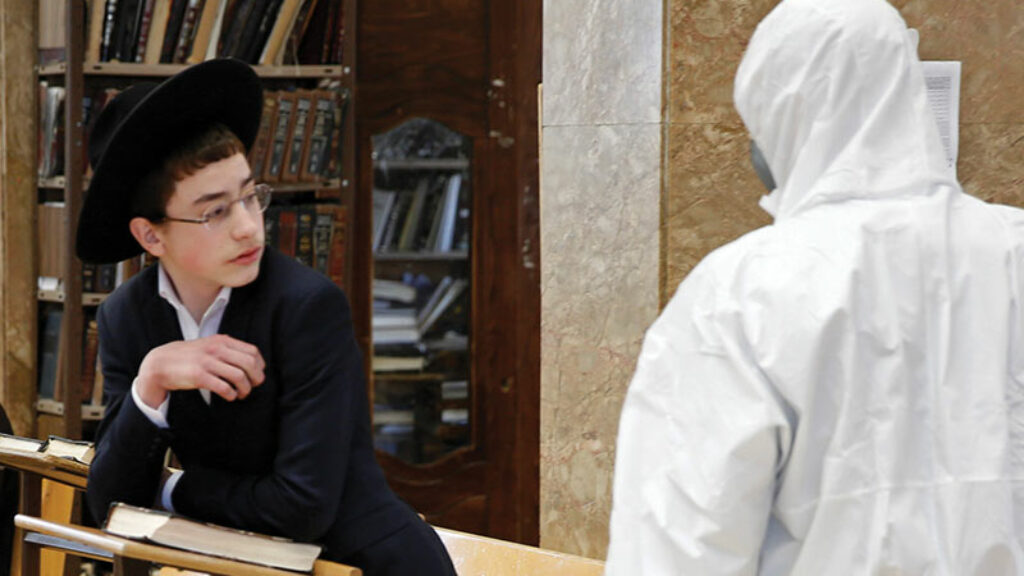The Limits of Prayer
One who prays to change the past, says the Mishnah, “utters a vain prayer.” A person should not beseech God to undo events that have already taken place, even when the outcome is still unknown. And yet there are circumstances where one is naturally tempted to do just that. Suppose, for instance, that I miss a crucial basketball game, but manage to avoid learning the final score. As I watch the replay, I may find myself not only rooting for my team, but actually praying for it. (One shouldn’t bother God with basketball, but fans can be desperate.) Other, more wrenching circumstances can also tempt one to utter such backward-looking prayers. The Mishnah imagines a man returning home from a journey and hearing cries of distress. If he prays that the cries are not coming from his house, it is a vain prayer. Indeed, it would appear that even the more altruistic prayer that no one in the city has been harmed, whoever they may be, would also count as vain, according to the Mishnah. Whatever has happened has happened.
In a discussion of causality with the Oxford philosopher Michael Dummett, the great logician Georg Kreisel once characterized this passage from the Mishnah as holding that “it is blasphemous to pray that something should have happened, for, although there are no limits to God’s power, He cannot do what is logically impossible,” from which Dummett concluded that the Mishnah was in error.
But does the Mishnah’s ruling on the limits of prayer relate to the limits of logic, or is something deeper at stake? Why does the Mishnah consider vain prayer to be such a bad thing, and what can it teach us about the nature of prayer? When is an event considered to have been concluded, a matter of the past, and when is it still open? This passage is discussed in both the Babylonian and Jerusalem Talmuds, each of which offers a very different answer to these questions. But before turning to the Talmudic discussions, let us examine the larger and, I think, very revealing context in which this matter is discussed in the Mishnah.
The ninth and last chapter of Tractate Berakhot deals with blessings of praise that are to be uttered at particular moments.
1. One who sees a place where miracles have been done for Israel, says, “Blessed
be He Who did miracles for our ancestors in this place.” [Upon seeing] a place
from where idolatry has been uprooted, one says “Blessed . . . Who uprooted
idolatry from our land”.
The Mishnah then moves from history to nature:
2. [Upon witnessing] shooting stars, earthquakes, thunderclaps, storms and lightning, one says, “Blessed … Whose strength and might fill the world.” On seeing mountains, hills, seas, rivers, and deserts, one says, “Blessed … Who created the world” … For rain and good tidings, one says, “Blessed … Who is good and bestows good.” For bad tidings, one says, “Blessed be the true Judge.”
It is here, oddly, that the Mishnah introduces the new category of vain prayer:
3. One who has built a new house or bought new vessels says, “Blessed … Who has kept us alive [she-hechiyanu] and preserved us and brought us to this season.” Over [something] bad, a blessing is said similar to that over [something] good, and over good, a blessing is said similar to that over bad. One who supplicates about a past event utters a vain prayer. If a man’s wife is pregnant and he says, “[God] grant that my wife bear a male child,” this is a vain prayer. If he is coming home from a journey and he hears cries of distress in the town and says, “[God] grant that this is not from my house,” this is a vain prayer.
4. One who goes through a city should say two prayers, one on entering and one on leaving . . . He gives thanks for the past and supplicates for the future.
The editor of the Mishnah understood the difficulty of the requirement that one must bless the bad as well as the good, with which the second mishnah ended. He therefore departed from the usual pattern of the Mishnah of stating only the rules and not their underlying justifications, and used the fifth mishnah to anchor it in the ideal of the love of God:
5. It is incumbent on a man to bless for the bad in the same way as for the good. As it is says [in Scripture], “And thou shalt love the Lord thy God with all your heart and with all your soul and with all your might” (Deut. 6:5). “With all your heart” means with your two impulses—the bad impulse and the good impulse; “with all your soul” means even if He takes thy soul; “with all your might” means, with all your money. Another explanation of “with all your might” is—in whatever measure He metes out for you [good or bad] you should thank Him very, very much.
Thanking God for the bad as well as the good is understood by our mishnah as an expression of the unconditional, non-instrumental nature of love commanded in Scripture: “And though shalt love the Lord thy God with all your heart and with all your soul and with all your might.”
The Mishnah proceeds then from a statement in the second mishnah of the duty to bless for the bad along with the good to a theological and scriptural explanation of it in the fifth mishnah. But why, we are bound to ask, does the Mishnah interrupt its elaboration of this important subject to discuss the apparently unrelated concept of a vain prayer? Shouldn’t a treatment of the latter concept be situated elsewhere in the tractate, perhaps in the chapters that deal with petitionary prayer? Indeed, if the third and fourth mishnahs were removed, the chapter would flow more smoothly.
This might seem to be a rather technical problem, but textual anomalies sometimes conceal theological tensions. In our case, the tension is between thanking and petitioning, and it stems from the idea that a person ought to thank God for the bad just as he does for the good. But if this is so, why should someone petition for anything at all? The duty to thank God for the bad seems to call for a posture of resignation and acceptance, yet petitioning involves a plea for change. Wouldn’t it have been better to abolish petitionary prayer altogether and thank God ahead of time for everything that he might choose to do for us?
The ninth chapter of Berakhot should be read as if it were tacitly answering these questions. The third mishnah does deal with petitionary prayer, but the limits it sets to such prayer are intrinsically connected to the theme of our chapter—blessings of gratitude and praise. A person who prays after the event has happened fails to thank for the bad. Rather than accepting what has happened and blessing God for it, he keeps on demanding change. We can thus restore the flow of our chapter: “Over [something] bad, a blessing is said similar to that over [something] good…,” but the one who keeps on demanding and screaming about the past, refuses to shift to such a mode of acceptance, and is uttering a vain prayer.
What appears to be an irrelevant digression in our chapter turns out to be a clarification of an
essential aspect of religious life. It rejects two possible and completely consistent solutions. The first one suggests an easy division of labor—a person should thank God for the good and may petition him to counteract all that is bad. The second option could have been to adopt a resigned attitude and to repudiate the religious value of petition altogether. Such fatalistic opposition to petitionary prayer has been adopted by some religious traditions on the grounds that a devout person should leave his fate in God’s hands. In rejecting these two options, the Mishnah shapes a complex attitude towards evil. When bad things are still avoidable, a person ought to fight them with all his strength. He should act on his own and petition God up to the last moment.
But once the events have actually occurred, he has to shift from demand to acceptance.
When a man’s beloved is sick, he should act and pray, but once she has passed away, he must accept the fact. Thus, after adducing the case of vain prayer as a manifestation of a failure to thank God for the bad, the Mishnah sums up, at the end of mishnah four, its approach to the relationship between acting and accepting: “He gives thanks for the past and supplicates for the future.” Praying is forward- looking, thanking is backward-looking, and both are essential to the religious attitude.
If we understand the concept of vain prayer within the larger context of the obligation to thank God for the bad, it follows that the vainness of prayer for past events is not dependent on the argument that backward causality is impossible, logically or otherwise. The point of the Mishnah is not that by asking God to undo the past we request what is impossible or absurd. The crucial third mishnah that limits prayer deals with a different problem altogether. The basis for such a limitation on prayer is not the limits of logic but the limits of complaint. There is no need to take a stance on the deep metaphysical problem concerning the logical possibility of backward causality, since the point of the Mishnah concerns not metaphysics but the nature of the religious and human stance towards the world.
To proceed on the basis of such wisdom, however, we need to know when an event is really over and the time has come to switch from action to acceptance. The third mishnah provides two very different examples to assist us in thinking about this matter. The first involves a case in which someone prays for his wife to give birth to a baby boy while she is already pregnant. Since the gender of the fetus has already been determined, he shouldn’t pray for it even though he has no knowledge of what it actually is (such a prayer, one might add, is not only backward-looking but retrograde). The second example describes a person who hears a scream in the city and prays that no harm should befall his family. In this case, the disaster has already happened, and such a prayer is a vain attempt at undoing the past.
In dealing with the first example, the Jerusalem Talmud and the Babylonian Talmud offer different conceptions of vain prayer and different conceptions of when an event is past. The Jerusalem Talmud wishes to delay the moment in which petition is declared to be vain, in part by citing a fanciful midrash about the birth of Jacob’s and Leah’s daughter, Dinah.
The School of Yannai said [it is a vain prayer] when she is giving birth, before that [during pregnancy] he can pray, since it is said [that we are] “like clay in the hands of the potter.” In the name of the School of Yanai: At the beginning [of Leah’s pregnancy] Dinah was a male. After Rachel petitioned, she became a female. This is what is said [in Scripture], “And afterward she bore a daughter and called her name Dinah” (Gen. 30:21). That is, after Rachel prayed, she became female. (Jerusaelm Talmud, Berakhot, 9, 3, 14a)
While a straightforward reading of the third mishnah suggests that the gender is determined at the time of conception, the School of Yannai wishes to postpone the moment of thankful acquiescence. This reading of that mishnah allows for continued petition for a change until the moment that the birth has taken place. The Jerusalem Talmud supplies a rationale by claiming that it is within the power of God to refashion human embryos. It even cites a precedent for such a gender change in the midrashic account of the birth of Dinah. Dinah was supposed to be a boy, but Rachel, knowing that Jacob would have only twelve sons, prayed for the gender of Leah’s fetus to be altered. Since ten sons had already been born to Jacob, Dinah’s switch would enable Rachel to have two boys.
The School of Yannai does not, of course, defend a retrospective prayer that the child should always have been a male from the moment of conception, since that would unquestionably be a vain prayer. Rather, any such prayer must be focused on the future, since God has the power to intervene miraculously and change the course of nature. Why, then, doesn’t the Jerusalem Talmud conclude that such a prayer might be uttered even when the child is one year old? If God is the potter of human clay, He could change the child’s gender then too. It would be difficult to squeeze such a notion into the text of the Mishnah, but in principle, it seems to follow the logic of prayer, as the Jerusalem Talmud understands it.
The Babylonian Talmud, however, offers an alternative understanding of the limits of prayer:
Are prayers of no avail? R. Joseph cited the following objection. “And afterward she bore a daughter and called her name Dinah” (Gen. 30:21). What is meant by “afterward”? Rab said: After Leah had passed judgment on herself saying, “Twelve tribes are destined to issue from Jacob. Six have issued from me and four from the handmaids, making ten. If this child will be male, my sister Rachel will not be equal to one of the handmaids.” Forthwith the child was turned a girl, as it says, “and she called her name Dinah.” [To R. Joseph’s question, the Talmud provides the following answer]: We do not cite a miraculous event [as a precedent]. (Babylonian Talmud, Berakhot, 60a)
The Babylonian Talmud begins with a challenge to the principle of the Mishnah similar to that of the Jerusalem Talmud. If prayer can change the course of events, a petition for a gender change shows faith and is not vain. This position is supported with a variant of the midrash about Dinah. But unlike the Jerusalem Talmud, which postpones the moment of closure in order to enhance the transformative power of prayer, the Babylonian Talmud rejects the story of Dinah as a precedent, since “we do not cite a miraculous event.” It therefore offers a different and expanded notion of a vain prayer.
According to the Babylonian Talmud, a prayer is vain when the supplicant is making a request for a miracle that goes beyond the natural order, even if it is future-directed. The Bayblonian Talmud’s position might be restated as follows: a person should not pray for something that is altogether unlikely to occur without his prayer. If someone dies we do not pray for his resurrection, biblical precedents notwithstanding. We know that for the dead to rise, a miracle must take place. On the other hand, we do witness, however rarely, the recovery of a desperately ill person, even when we haven’t prayed for it. For this reason we must not pray for resurrection, but we can pray for recovery, even of the desperately ill. I was told that when Rabbi Yosef Shalom Elyashiv, who is widely considered to be the greatest living rabbinic authority in Israel, was asked whether one could pray for the recovery of someone who was brain dead, he immediately answered, “This is a vain prayer!” In that ruling, he followed his principled position that praying for miracles is not allowed.
To return to the basketball analogy with which we began, according to the Babylonian Talmud, not only is it a vain prayer to ask for your team to win while watching a replay; it is also a vain prayer if they are trailing by twenty points with three seconds left on the clock. The result of such a game is already determined even if the game is not over. God could make the last three seconds of the game longer, but that would be a miracle, and to ask for one is a vain prayer.
Thus, while the Jerusalem Talmud sticks to the distinction between backward-looking and forward-looking prayer, the Babylonian Talmud is interested in the question of whether the event is fully determined or not. The Babylonian Talmud assumes the open-endedness of the future, but only with respect to what is naturally possible. The establishment of such a restriction on future-oriented prayer might reflect a sense of religious modesty, an understanding of the limits of one’s power to sway God. Asking for a miraculous intervention is presumptuous; only the prophetic matriarchs Leah or Rachel ask for such things. Such broad definitions of vain prayer might be motivated by a sober prudential policy. If a person can ask only for things that might occur anyway, prayer can be protected from falsification. Indeed, when the thing prayed for comes to pass, it is possible to claim that the prayer as its effective cause.
In his remarks on Victorian scholar James George Frazer’s influential work of anthropology, The Golden Bough, Ludwig Wittgenstein makes the following point concerning the nature of ritual and prayer:
I read among similar examples of a Rain King in Africa to whom the people pray for rain when the rainy period comes. But surely that means that they do not really believe that he can make it rain, otherwise they would do it in the dry periods of the year in which the land is “a parched and arid desert.” For if one assumes that the people formerly instituted this office of Rain King out of stupidity, it is nevertheless certainly clear that they had previously experienced that rains begin in March, and then they would have had the Rain King function for the other part of the year.
According to Frazier, primitive rituals were inspired by bad science. Wittgenstein thought that Frazer confused expressive gestures with descriptive theories, misconceived ritual as false technology, and then criticized it for being superstitious. The tribe that prays to the Rain King does so only in the rainy period. Contrary to Frazer’s assumption, the members of the tribe seem to have had a good sense of the nature of the world. If they thought that such a ritual had causal power, why wouldn’t they pray in the summer? Prayer, according to Wittgenstein, is not based on causal premises, rather it is an expressive gesture, embodying people’s hopes and yearning for a moral order in the universe. The Babylonian Talmud’s conception of vain prayer may anticipate such a Wittgensteinian stance. Praying for a miracle, according to the Babylonian Talmud, is a manifestation not of hubris but of confusion concerning the very meaning of prayer.
Suggested Reading

Lost in Translation: Song of Songs and Passover
Why is this Targum different from all other Targums?

It’s Spring Again
A startling painting on the walls of the ancient synagogue at Dura Europos depicts some 2nd-century Jews who have, until recently, been dead and who look very surprised to have been reconstituted and revived.

More than the Old New Antisemitism
Reviel Netz responds to Jonathan Karp.

Holiness and Public Policy: The Haredi Response to COVID-19
Bnei Brak, where yeshivot and synagogues were kept open far too long, accounted for 16 percent of all Israeli COVID-19 cases and a comparable percentage of fatalities despite comprising only 2 percent of the Israeli population. We haredim must radically rethink our approach to public policy—and holiness.
Comments
You must log in to comment Log In